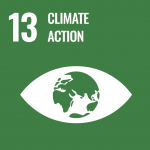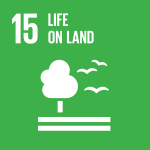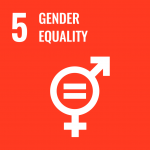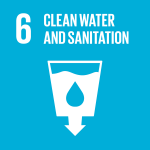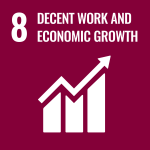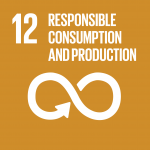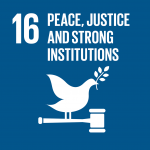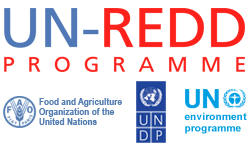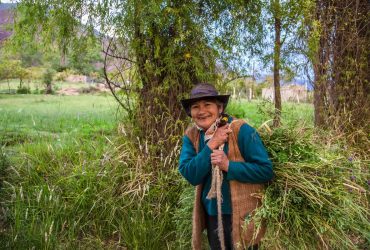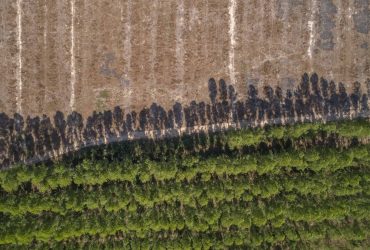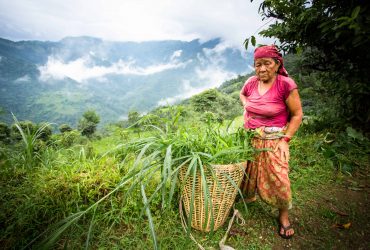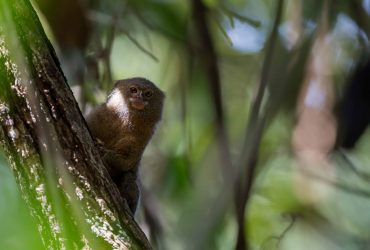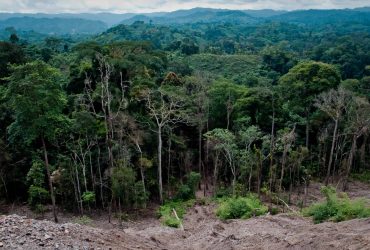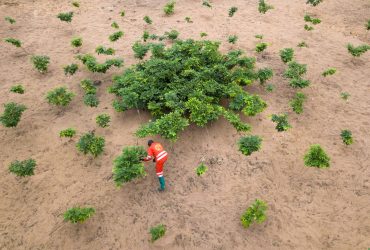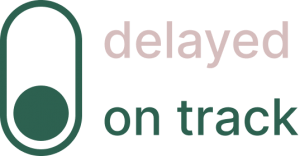

Chile

Forest solutions realized: Chile continues to lead on ambitious climate action, particularly in implementing the UNFCCC framework for REDD+. During the second half of 2022, Chile started the full implementation of its National Strategy for Climate Change and Vegetation Resources (ENCCRV) and its Benefit Sharing System (SDB in Spanish), led by the Ministry of Agriculture (MINAGRI) through the National Forest Corporation (CONAF) and with the support of Chile’s RBP GCF Project, +Bosques. Through the +Bosques project, the ENCCRV approved 394 applications to implement REDD+ measures of action in 4,600 hectares from 2023 to 2024. Lessons learned from early implementation of the SDB, and the need to leverage further finance to guarantee the full implementation of the ENCCRV, underscore the importance of Chile undertaking a systematic analysis to update the financial strategy for the ENCCRV. This would allow the country to maximize its funding opportunities for a cost-effective, cost-efficient and sustainable implementation, with an increased role for the private sector.
During the last quarter of 2022, UN-REDD supported the development of a methodological framework, and an annotated outline, for the design of a fit-for-purpose finance strategy for Chile, conceived to facilitate access to a diversity of sources of financing.
During 2022, CONAF developed an updated FREL/FRL for the period 2001-2013, which includes a series of improvements, particularly in terms of geographical scope, moving from six to 12 regions, and covering 99.9 percent of the forest coverage at the national level. UN-REDD support included the revision and technical backstopping in the preparation of the proposed FREL/FRL, for submission to the UNFCCC in January, 2023 for Technical Assessment during the first trimester of 2023. As part of continuous improvements to monitor four REDD+ activities, further UN-REDD support was deployed to prepare a plan to build national capacities on the estimation of uncertainty and the application of the Montecarlo method, a technique in which a large quantity of randomly generated numbers are studied using a probabilistic model to find an approximate solution to a numerical problem that would be difficult to solve by other methods, and for the development of a dedicated tool for CONAF´s use, which will be delivered in 2023, in preparation for the FREL/FRL technical assessment session with the UNFCCC.
The implementation of the ENCCRV is supported by an operational Monitoring and Measuring System, which includes the SIS. During 2022, UN-REDD reviewed and provided technical backstopping for the development of improvements in the SIS, including facilitating dialogues with CONAF to identify lessons learned and challenges for the improvement of the SIS, including the collection and aggregation of information on safeguards’ implementation at multiple scales, including under the +Bosques project. Moreover, UN-REDD provided technical backstopping and feedback for the preparation of Chile’s Second Summary of Information on Safeguards, to be completed and submitted to the UNFCCC in 2023.
Forest solutions rewarded: During 2022, UN-REDD support included legal assistance to CONAF regarding clarification of carbon rights. As part of the feasibility analysis for Chile to comply with the requirements of the ART-TREES standard regarding the ownership of emissions reductions, Chile completed a draft analysis, “Challenges and opportunities related to the regulatory framework for reduced emissions titling.” This draft analysis complements efforts initiated in 2021 under the UN-REDD National Programme and has two objectives: i) to describe the status quo of Chilean legislation and elements associated with its interpretation and existing arrangements related to carbon rights, in light of relevant international schemes and standards; and (ii) to identify challenges and opportunities as the country moves forward in seeking legal solutions to clarify carbon rights and benefits associated with these rights. Additionally, as part of the activities carried out in 2022, this analysis assessed the possible implications of the draft of the new constitution, subject to a plebiscite held in September, 2022. While the plebiscite eventually rejected the new proposed constitution, a new constitutional process has been launched and with a new plebiscite to be held in November, 2023.
In relation to the development of a TREES concept to be submitted by Chile to the ART Secretariat, CONAF reiterated during 2022 the need to prioritize the work on a nesting approach for REDD+ projects under the ENCCRV and a supporting finance strategy before moving on to the preparation of a TREES concept. CONAF noted the remaining need to develop a better understanding of the technical and legal implications of the standard before making a decision to pursue an ER programme registration, which will be further supported in 2023.
Forest solutions Enhanced: CONAF has been building institutional capacities under its NFMS to measure emissions reductions at both the project and small-scale, property level, to determine individual and private contributions to the implementation of the ENCCRV and its NDC, with a focus on beneficiaries of the ENCCRV/SDB. Similarly, the operation of the NFMS and MRV process has progressed, including the development of an updated FREL/FRL. The UN-REDD’s 2023 planning efforts have facilitated strategic discussions with CONAF in relation to the need for the definition of regulations and/or institutional arrangements that facilitate the operation of a nesting approach, complemented by a conceptual/methodological framework for the integration of multiple ER accounting scales and approaches. As a result of these discussions, the TA 2023 was defined as the development of standard operational procedures at the normative and technical level. The operationalization of a nesting approach aims to maximize funding opportunities and provide the basis for enhancing environmental integrity, while contributing to the achievement of NDC objectives.
On March 11, 2022, Chile’s new President assumed office. This was followed by a transition process for CONAF while the TA 2022 workplan was being defined. Transition processes can typically lead to programmatic delays, and in this case, there were minor delays during the first half of 2022. However, a hybrid country mission in June, 2022 provided the space to fine-tune the workplan and identify, in detail, activities towards agreed deliverables and milestones at the output level. Moreover, during this hybrid country mission, Chile underscored the importance of having the necessary inputs to develop a financial strategy to access REDD+ and other forest carbon financing, including the improvement and consolidation of their safeguard and MRV system. Since this mission, regular coordination between thematic focal points, and between CONAF and UN-REDD at a more strategic level, have facilitated smooth progress for activities and revised milestones for the 2022 period, including the agreement of a detailed 2023 workplan.
Gender and social inclusion have been promoted as part of the TA for 2022, consistent with CONAF´s efforts to mainstream gender equity and social inclusion during the implementation of the ENCCRV. Early implementation of the SDB is underpinned by gender and social variables, which are part of the technical criterion for the evaluation and prioritization of applications for the implementation of REDD+ measures for actions on the ground. Similarly, gender and social inclusion have been streamlined at the operational level of the ENCCRV and the +Bosques project, including both in the design of projects under the SDB, through inclusive and participatory processes (including FPIC, when appropriate), and by building local and regional capacities at the institutional level. Furthermore, at a management and decision-making level, CONAF is promoting gender and social inclusion across its governance structures for REDD+, including gender and IPs representatives as observers in the +Bosques Steering Committee, as well as members of regional REDD+ groups to support the operation of the SDB. All of these will provide valuable lessons from the ENCCRV implementation in 2022, allowing a strengthened gender sensitive approach in the ENCCRV. Further UN-REDD support will be deployed in 2023 to update a gender gap assessment as part of further improvements on the SIS, and in relation to ART-TREES safeguards indicators.
Although the forestry sector is traditionally male-led in Chile, it is worth noting gender mainstreaming efforts promoted through the REDD+ national process, including via UN-REDD, led to greater gender parity on CONAF’s REDD+ management and technical team, which is largely composed of women. This is part of larger efforts working to achieve gender equity in the sector.
CONAF is currently leading the full implementation of the ENCCRV through blended finance, including domestic resources and through the reinvestment of REDD+ results-based finance secured by Chile through a wide array of sources, including the GCF RBP pilot programme, which provides roughly $64 million for results achieved from 2014 to 2016. The +Bosque Project, implemented by CONAF in cooperation with the Food and Agriculture Organization of the United Nations as a GCF accredited entity and technical agency, is a strategic partner for UN-REDD´s technical assistance in Chile that provides financial and operational supports for the implementation of the SDB, as well as the operation of technical efforts under the REDD+ framework, including forest monitoring, MRV and safeguards implementation and monitoring. Moreover, lessons learned from the implementation of the SDB will play a key role in defining the REDD+ nesting framework for Chile and a finance strategy for the ENCCRV, to be supported by UN-REDD in 2023.
As a result of the implementation of the ENCCRV and its SDB, progress under UN-REDD´s TA contributes directly to SDGs 13 and 15, and indirectly to SDGs 5, 6, 8, 12 and 16.
